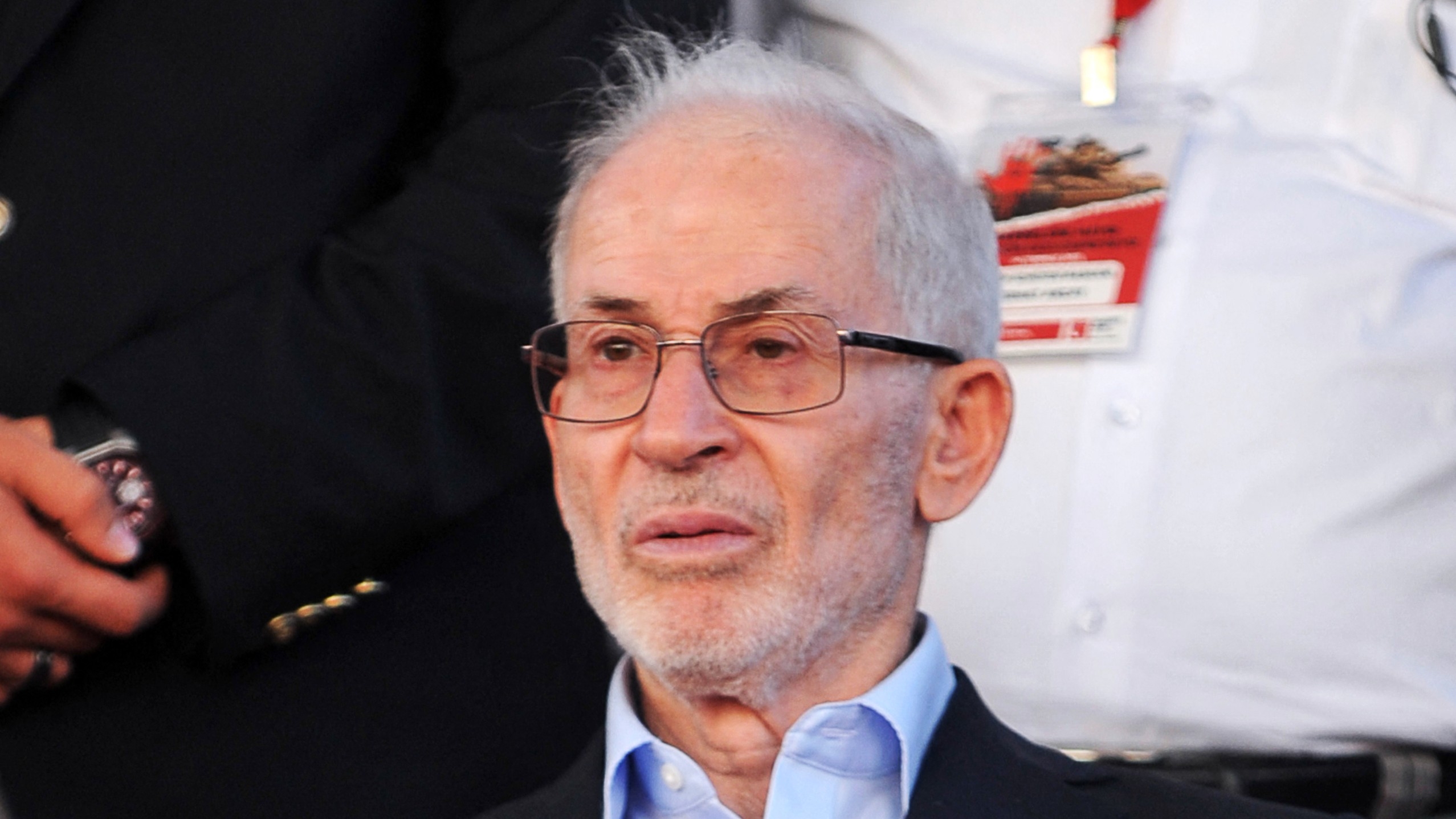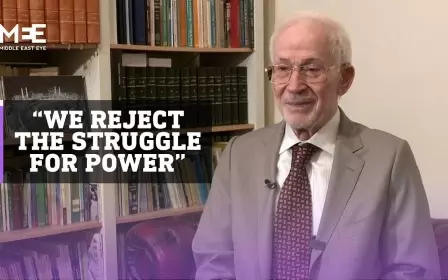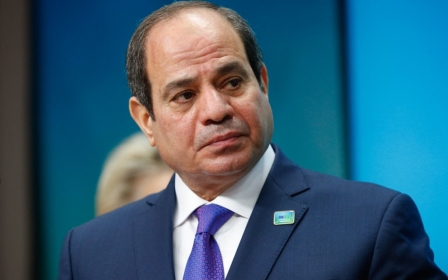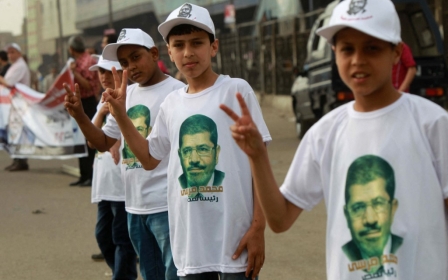Ibrahim Munir: Muslim Brotherhood's acting leader dies in London

The acting leader of the Egyptian Muslim Brotherhood opposition movement Ibrahim Munir has died in the UK at the age of 85.
The group said in a statement Munir died on Friday morning at his home in London, where he had been living in exile.
Munir became the acting leader of the Brotherhood two years ago after the detention of its deputy leader Mahmoud Ezzat in 2020.
The group's chairman, Mohammed Badie, was among thousands detained in the summer of 2013, when then defence minister Abdel Fattah el-Sisi led a coup against his democratically-elected predecessor Mohamed Morsi, a senior member of the Brotherhood.
The group had supported the 2011 pro-democracy uprising against late President Hosni Mubarak, and won successive elections as the largest organised political group in the country at the time.
Munir was twice jailed in Egypt in the 1950s and 1960s, served 10 years in jail for his activism and had lived in exile for most of the past 40 years.
In an interview with Reuters in July, Munir had announced that the Brotherhood, now outlawed by Sisi's government, would not launch a new struggle for power with authorities, even though the movement still claims wide support.
The movement won Egypt's first free presidential election in 2012, but was overthrown by the military a year later and has endured a fierce crackdown by authorities since then.
Many of its leaders and thousands of its supporters are in jail, were killed by security forces in the crackdown on anti-Sisi protests, or have fled Egypt.
Dialogue 'should include everyone'
Following the 2013 coup, Cairo designated the Brotherhood a terrorist organisation.
Munir had reiterated the group's long-standing rejection of violence. He acknowledged that the Brotherhood had experienced internal divisions over how to respond to the detentions of Badie and Ezzat, announcing that a new leader would be chosen "when the situation stabilises".
Compounding the Brotherhood's challenges, shifting Middle East diplomacy has seen two countries that offered refuge to Brotherhood supporters in the past decade - Turkey and Qatar - mending relations with an axis of states committed to crushing the group - Egypt, the United Arab Emirates and Saudi Arabia.
Turkey last year asked Egyptian opposition television channels operating on its territory to moderate criticism of the Cairo government as it tries to rebuild relations with Egypt.
Within Egypt, the Brotherhood, which over decades developed a network of charitable organisations, still enjoys the sympathy of many of the country's 102 million people, Munir said in an interview with Reuters in July.
He added that the political dialogue announced earlier this year by Sisi's government and selected opposition groups was not a serious initiative and could not achieve results if it excluded the Brotherhood or other figures.
"Dialogue is really needed but it has to include everyone," said Munir.
Middle East Eye propose une couverture et une analyse indépendantes et incomparables du Moyen-Orient, de l’Afrique du Nord et d’autres régions du monde. Pour en savoir plus sur la reprise de ce contenu et les frais qui s’appliquent, veuillez remplir ce formulaire [en anglais]. Pour en savoir plus sur MEE, cliquez ici [en anglais].





